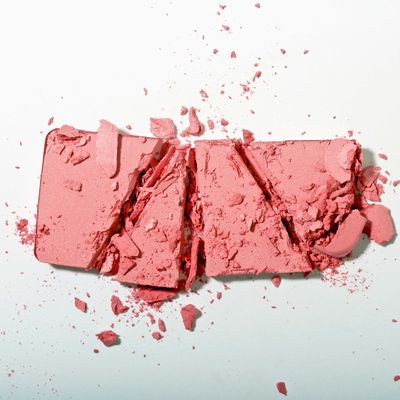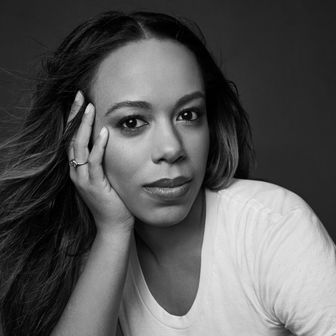
“Don’t encourage the [skin-care] industry to be assholes,” Paula Begoun, the founder of beauty brand Paula’s Choice and self-proclaimed cosmetics cop, told me when I asked her about how she rates beauty brands on her website. Unlike other online beauty reviewers, Begoun’s site takes a scientific approach to reviewing beauty products: She analyzes their ingredients rather than testing the products, and gives them a rating, followed by an often tongue-in-cheek explanation of the product’s grade.
After decades of analyzing skin-care and makeup products this way, Begoun developed her own beauty line in 1995, which includes one of the best retinol serums on the market and offers skin-care solutions for everything from adult acne to sensitive skin. The Cut talked to Begoun about her strictly scientific approach to beauty, how Paula’s Choice is different from other beauty brands, why she refuses to sell face scrubs, and how brands react when she dishes out a negative review.
How does Paula’s Choice stand out from the thousands of other cosmetics companies?
All of the skin-care products we offer on Paula’s Choice are based on (and I can’t stress this enough) published research [like the Lancet]. On every one of our products’ pages, we list all of the research that backs our ingredient selection and our product claims. I have never seen another company, in my 30 years of reviewing and researching cosmetics and skin-care products, do that. Before we put a formula together, the ingredients have to have research showing that it matches what skin is capable of and what the research says works. I don’t expect my customers to be my guinea pig. Companies love showcasing this miracle ingredient from the rain forest or the French countryside, or China. Whatever it is, it’s never from New York! The skin is the largest organ of the body and it’s very complicated. It’s the only organ where the mass is exposed to the outside. Skin requires a complicated, complex array of ingredients to make it healthy, to fight certain skin disorders, and to stay young.
What is your review process at Paula’s Choice?
We review skin-care products strictly by ingredient list. You don’t need to smoke a cigarette to know it’s bad. You don’t need to wear a cream to know that it’s bad, too. I would never ask someone to put a bad product on their skin because the damage could show up years later. Or the damage is insidious. Let’s take irritating ingredients. Irritating ingredients cause immune suppression (meaning the skin won’t heal as well), reduce the skin’s ability to fight environmental damage, and break down collagen and elasticity. All of that is happening underneath, where you don’t see it.
Do you conduct your own clinical trials?
We don’t launch a product without doing our own clinical studies. But clinical studies are very limited. I can give you a cream, tell you to put it on half of your face, and say it’s $150 from a super-fancy company. I could also give you a $10 cream and tell you to put it on the other side of your face. There was a study done many years ago that showed that even though both creams were the exact same product, 83 percent of the women tested said they preferred the so-called expensive cream.
Companies really floor me with their miracle ingredient claims. If it’s so great for skin, then why the hell aren’t they using it in all of their products? How do women get around that insanity? Skin is too complicated; there is not a magic bullet lying out there in some exotic location or some fancy laboratory. It doesn’t exist. It’s a lie, and [companies] lie about it all the time. You’ve got to get around the marketing to take great care of your skin.
Your website downgrades products based on their pH or packaging for efficacy. How is that so?
The issue that you see with pH is generally with alpha hydroxy acids (AHAs) and beta hydroxy acids (BHAs). Salicylic acid [BHA] is like an unsung hero that’s been around forever, in terms of reducing blemishes, fighting skin discoloration, building collagen, etc. AHAs also help with building collagen and evening out skin tone. They are brilliant ingredients, but they are only effective somewhere between a pH of 3.2 and 4. Most, but not all, products are made in that pH range.
In terms of containers, the problem is that the most important ingredients for skin, like antioxidants, don’t like air. They break down when exposed to air. When you take the lid off of a skin-care jar and you dip your finger in it, you’re not only transferring bacteria from your finger to the product, but you’re also letting in air. Preservatives don’t help, either — they only prevent you from getting an infection or stop mold from growing. Think about how long an orange lasts in your refrigerator — the same thing happens to antioxidants. Just don’t buy a jar. Don’t encourage the industry to be assholes. [Editor’s note: Begoun prefers pumps and opaque tubes.]
Do you ever get a response from cosmetics companies when you negatively review one of their products?
In the 30 years that I’ve been doing this, I can count on one or two hands the number of times I got a letter. I think mostly they just ignore us.
Do you feel a conflict of interest selling your own products while reviewing others?
I was reviewing products well before I launched my own product line. Prior to launching Paula’s Choice, I had written ten books. So I had already been a critic. We are the only cosmetics company in the world to recommend products other than our own. Perhaps the conflict of interest is, what is someone like me, who owns a cosmetics company, doing recommending other products than my own? Maybe I’m the crazy one.
What are the standout products at Paula’s Choice?
I’m particularly proud of our assortment of BHAs. We came out with all of these versions to accommodate different preferences and skin types. I’m also very proud of our serums. They’re packed with antioxidants and anti-inflammatory ingredients. What’s also nice about these products and unusual is that most of these are non-aqueous — they aren’t made with water. It keeps the antioxidants even more stable. We also have an assortment of retinol products. Retinol is a fascinating ingredient because it’s one of the few cell-communicating ingredients that we know the most about. Retinol is one of those hero ingredients, and we have several of them. All of our retinol comes in stable packing and is available from .3 percent to 1 percent.
You don’t sell face scrubs. Why?
When you scrub skin with abrasive scrubs, they put micro-tears into skin. And when you tear it, you damage the barrier to skin, which can cause all sorts of problems because it’s bad for skin. What we do recommend is the Clarisonic, and you can also use a soft washcloth and a gentle cleanser. Damaging the surface of skin is always bad for the skin. It makes it more vulnerable to environmental damage, pollution, and sun damage. You might have heard that it will help with collagen, but that’s like saying I’ll smoke a cigarette because I find it relaxing. There are other ways to stimulate collagen without damaging the skin. [Paula’s Choice does offer chemical exfoliants, however.]
This interview has been edited and condensed.





